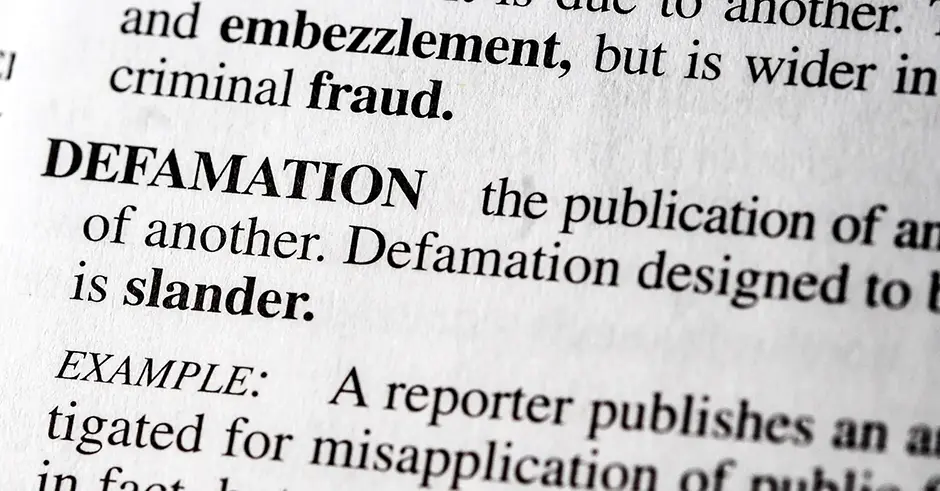Defamation refers to the act of making false and damaging statements about someone that causes harm to their reputation. These types of actions can have serious consequences for victims and often fall under the umbrella of personal injury law.
Elements of a Personal Injury Case
A personal injury is any harm or damage a person or their property suffers as a result of someone else’s negligent or intentional actions or inactions. Although people commonly associate personal injury with bodily harm only, it can also include intangible harm, including emotional distress or damage to one’s reputation.
For a personal injury case to be successful on the grounds of negligence, four elements must be present:
- Duty of care: The defendant owed a duty of care to the plaintiff (the victim). This means the defendant had a responsibility to act reasonably and avoid causing harm to others. Most people have a duty of care to act in a way that reasonably does not harm others, such as driving safely on the road or refraining from making false statements.
- Breach of duty: The defendant failed to uphold their duty of care and acted negligently or recklessly, causing harm to the plaintiff. In defamation cases, this would be making false and damaging statements about someone.
- Causation: There must be a direct link between the defendant’s actions and the plaintiff’s harm. In other words, the defamatory statements must have caused direct damage to the victim’s reputation or emotional well-being.
- Damages: The plaintiff must have suffered actual damages as a result of the defendant’s actions, which can include physical, emotional, and financial losses.
Defamation as Personal Injury
There are two main types of defamation — slander and libel:
- Slander: This refers to defamatory statements made orally or verbally. An example might be spreading false rumors about someone during a conversation.
- Libel: This pertains to defamatory statements made in written form or through published media. Think of a damaging false statement in a newspaper or online article.
Both types of defamation can result in personal injury claims if the case satisfies the four elements of negligence. It is important to note that defamation claims typically require proof of actual damages, rather than just hurt feelings. Examples of harm that can be compensated in defamation cases include:
- Lost job opportunities
- Loss of business or clients
- Significant emotional distress, such as anxiety, depression, or posttraumatic stress disorder
- Damage to one’s reputation and standing in the community
Let’s look at a specific case example of how defamation can be considered a personal injury. Imagine that Sarah is a successful businesswoman who has worked hard to establish her reputation in the community. One day, Jenna, a disgruntled former employee of Sarah’s company, spreads false rumors about her business practices and accuses her of fraudulent activity.
As a result, several clients stop working with Sarah and she loses significant income. In this scenario, Sarah could potentially file a personal injury lawsuit for defamation against Jenna if she can prove that Jenna’s statements were false, damaged her reputation, and caused financial harm.
Proving Defamation in a Personal Injury Case
Personal injury cases are civil cases, which have a lower burden of proof than criminal cases. The plaintiff must only show that it is more likely than not that the defendant committed the harmful act. This burden of proof is known as “preponderance of the evidence,” as opposed to “beyond a reasonable doubt” in criminal cases.
While this standard is lower, it is still important to have strong evidence in a defamation case. If the case meets the criteria for personal injury but there is no clear evidence of the defendant’s negligence, the plaintiff may be unable to pursue compensation. This can be particularly challenging in cases involving slander, as there is often no record of the false statement. However, witness testimony, expert opinions, and other indirect evidence can help build such a case.
This evidence can also help show that the statement was indeed false. For example, in Sarah’s case, she could potentially gather statements from her former clients and employees who can attest to her good reputation and business practices. She could also hire an expert in the field to analyze her company’s financial records and refute Jenna’s claims of fraudulent activity.
A plaintiff must also demonstrate that these statements caused harm. In Sarah’s case, she would need to provide evidence of lost income or damage to her reputation within the community as a direct result of Jenna’s actions. This can be challenging, but a skilled personal injury attorney can help gather and present the necessary evidence to support such claims.





